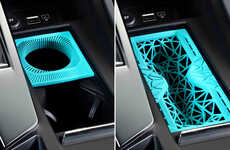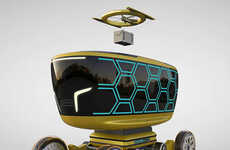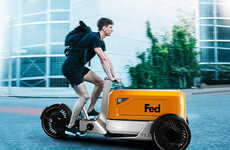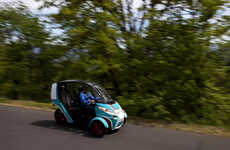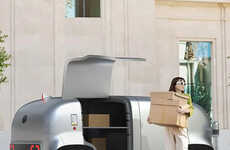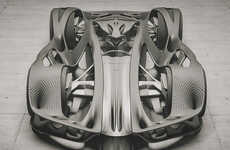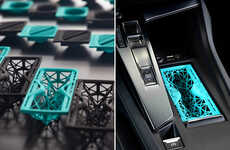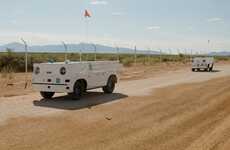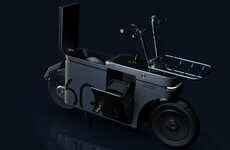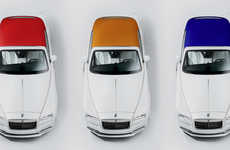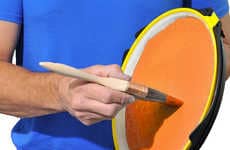
Kabuku and Honda Created a Printed Delivery Vehicle for Toshimaya
Laura McQuarrie — October 6, 2016 — Autos
References: 3ders.org
Toshimaya is a confectionery company that found itself in need of a delivery vehicle that was compact enough to navigate the narrow streets in Kamakura Prefecture, which is just south of Tokyo, Japan. As such, Honda teamed up with the 3D printing specialists at Kabuku to come up with an inventive solution with additive manufacturing.
The resulting delivery vehicle is not a full-sized car, but rather a small mini-car that boasts just enough space for a driver and a trunk full of boxed confectionery goods.
What's significant about this 3D-printed automotive example is that it is highly specialized for a single purpose, indicating that there is plenty of potential for companies in the future to have delivery vehicles and other cars tailor-made to fit a very specific set of requirements.
The resulting delivery vehicle is not a full-sized car, but rather a small mini-car that boasts just enough space for a driver and a trunk full of boxed confectionery goods.
What's significant about this 3D-printed automotive example is that it is highly specialized for a single purpose, indicating that there is plenty of potential for companies in the future to have delivery vehicles and other cars tailor-made to fit a very specific set of requirements.
Trend Themes
1. Specialized 3d-printed Vehicles - The trend of creating 3D-printed vehicles tailored for specific purposes presents an opportunity for disruptive innovation in the automotive industry.
2. Additive Manufacturing in Delivery Vehicles - The use of additive manufacturing in the production of delivery vehicles opens up new possibilities for customization and optimization in the logistics industry.
3. Compact 3d-printed Mini-cars - The development of compact 3D-printed mini-cars provides an opportunity for disruptive innovation in compact transportation solutions for urban environments.
Industry Implications
1. Automotive - The automotive industry can explore disruptive opportunities by incorporating specialized 3D-printed vehicles into their product offerings.
2. Logistics - The logistics industry can leverage additive manufacturing in the production of delivery vehicles to create customized and optimized solutions for efficient transportation.
3. Urban Transportation - The development of compact 3D-printed mini-cars presents disruptive innovation opportunities for the urban transportation sector, offering efficient and tailored solutions for navigating narrow city streets.
6.8
Score
Popularity
Activity
Freshness

